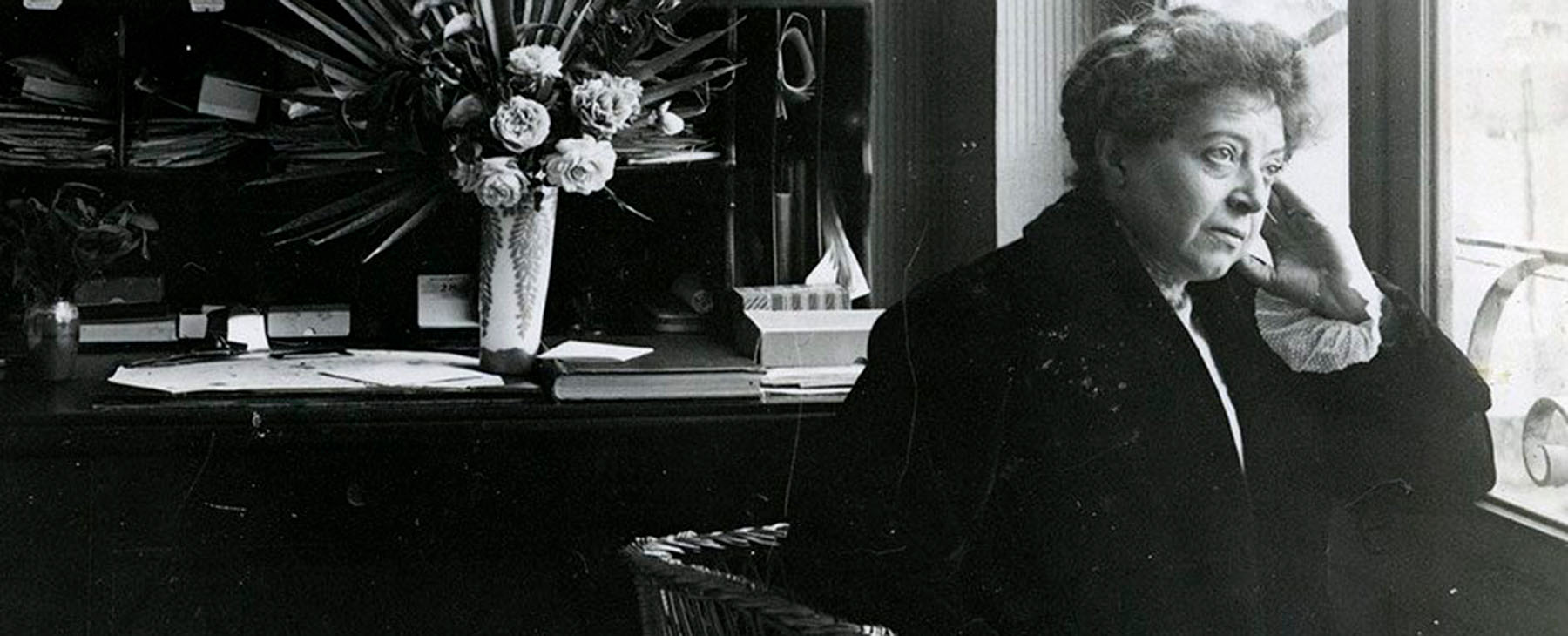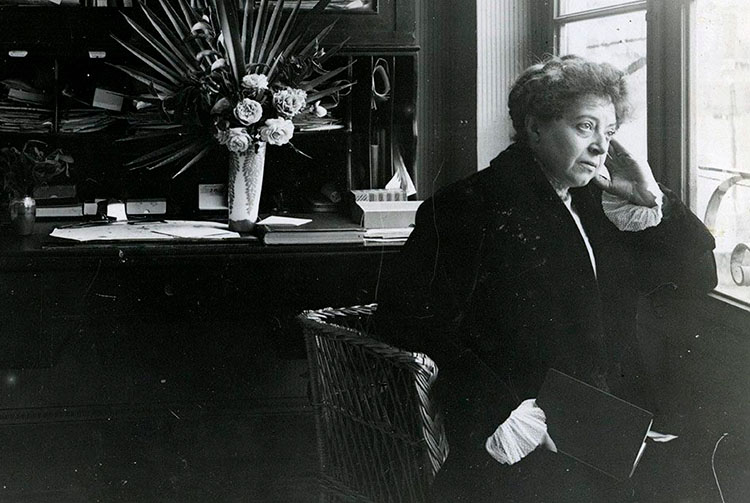

The progressive feminism of Carme Karr
With the help of 11Onze agent and historian Oriol Garcia Farré, we continue our approach to the history of contemporary women. In this case, we do so by recalling the figure of Carme Karr, who embodied progressive feminism between the 19th and 20th centuries and played a key role in the establishment of universal women’s suffrage.
History has been written by men. For centuries, the male gender has constructed a narrative around its deeds – mainly in the public sphere – and has minimised or ignored women’s contributions.
War, politics, diplomacy or management have built this reality. Therefore, the role given to women has been typically reserved for their gender: wife, mother, daughter, lover… To put it simply, the masculine vision has ended up imposing itself on the feminine reality.
Since ancient times, the sexual differentiation of work has led to a distribution of tasks according to sex, largely driven by biological characteristics. The evolution of societies based on this distinction would end up provoking a differentiated apprenticeship between women and men, which capitalism would transform into resounding inequality.
Voices of protest
At the same time, voices were raised that, through knowledge, ability, and intelligence, would energetically combat gender-based social injustice and express a clear desire to achieve full equality between men and women, even if it cost them their lives.
Catalan society at the beginning of the 20th century did not know how to handle the impact of the appearance of Carme Karr y Alfonsetti (1865-1943) on Barcelona’s intellectual scene. The fact that she was born in a bourgeois, cosmopolitan and European environment – together with her mastery of several languages – gave her a great breadth of vision.
History has recognised her as the country’s first regularly published journalist. She had gained experience on the staff of the magazines ‘Juventud’ and ‘El Adelanto’. But she is most widely known for her work as the head of the magazine ‘Feminal’.
A feminist megaphone
From this megaphone of gender freedom – created and designed for women – Karr would work intensely to elevate the intellect of the female readers who sat down to read at the recently created Biblioteca Popular de la Dona (Women’s Popular Library).
With countless top-level contributors and contributions from all over Europe, ‘Feminal’ acted to vigorously vindicate the role of women in society. The topics it covered were not usually trivial, but highlighted, above all, pervasive issues of common interest. The annals of journalism will remember the written confrontation between Carme Karr and Eugeni d’Ors in their debate on the intellectual capacity of women in tackling such “complex” cultural subjects as poetry, art, and music. No doubt about who got scalded!
It was through her writings that Karr projected a model of womanhood based on modernity and humanism. The key to her ideology hinged, firstly, on the acquisition of a female culture of her own, a basic factor for the progress of society. And then, in obtaining absolute recognition of all their rights.
Culture and feminism, together in public for the first time
It was on Wednesday 6 April 1910 that a woman was allowed to speak in public about culture and feminism for the first time. And it had even more merit to do so in front of an audience that was mainly male and not at all accustomed to listening to women, as was the Atenu Barcelonès at the beginning of the 20th century.
Today’s curiosity evokes the question of how those men must have felt when they heard from the mouth of a woman, and probably for the first time, the importance of normalising the world of women within their patriarchal society.
This discourse is widely remembered as it openly addressed the need to create institutions exclusively for women’s education. These centres of culture for women were to become the fundamental tool that would enable them to acquire the appropriate professional level and thus pave the way to full equality in the workplace.
In addition to the renaissance strategy, it was also necessary to work on the regulation of more gender-specific issues, such as mutual insurance companies to protect them during maternity or the creation of female labour exchanges.
Echoed in Madrid
It was a resounding success. The social impact of the conference was such that it had to be repeated on the following two Wednesdays: 13 and 20 April. But it didn’t stop there. The demands reached Madrid, in a letter sent to the Catalan Solidarity MP Francesc Macià. The future 122nd president of the Generalitat of Catalonia understood that this demand was legitimate and necessary to modernise Catalan society.
This was a turning point for Carme Karr. In the early 1920s, the journalist became an activist, and one of the first actions she undertook in this new phase was to promote the association Acció Femenina, which worked tirelessly to establish universal suffrage for women, among other actions.
The concept of universal women’s suffrage that Carme Karr defended was much closer to the British and American suffragettes than to the National Association of Spanish Women (ANME), which they considered too radical.
The 1929 Barcelona International Exhibition was a perfect megaphone for Catalonia and for Carme Karr to show the world that Catalan society was already modern. Carme Karr was entrusted with the direction of the Women’s Pavilion, the content of which was designed to break down the prejudices of the time about women.
A short-lived breakthrough
The Second Republic brought universal suffrage for women throughout the state. For the first time, women could vote. History had done justice after so many decades of effort and legitimate demands. In this way, conservative feminism, which argued that the social role of women had to focus on two areas: the family and religion, was imposed.
But the victory was short-lived. Carme Karr was deeply affected by the outbreak of the Civil War, the establishment of Franco’s regime, and the outbreak of the Second World War.
For an intelligent, freedom-loving, and absolutely pacifist person, it was difficult for her to understand how a gang of obtuse people were imposing by force, a model of women that forced them to return to their homes and be removed from public life. Seeing decades of effort vanish in an instant pushed her into a depressive abyss.
Thanks to the work of Carme Karr and her contemporaries, universal women’s suffrage became a reality throughout the state. That generation of women worked for the creation of a feminine consciousness that claimed the need to articulate a culture from the feminine self.
11Onze is the community fintech of Catalonia. Open an account by downloading the super app El Canut for Android or iOS and join the revolution!
Leave a Reply
You must be logged in to post a comment.





Gràcies!
Gràcies, Joan! Seguim a La Plaça.
Bona classe d’història👏👏👏
Gràcies, Jordi per llegir-nos. Seguim a La Plaça!
Un article molt interesant.
Moltes gràcies, Manel per llegir-nos. Ens veiem per La Plaça!
💛